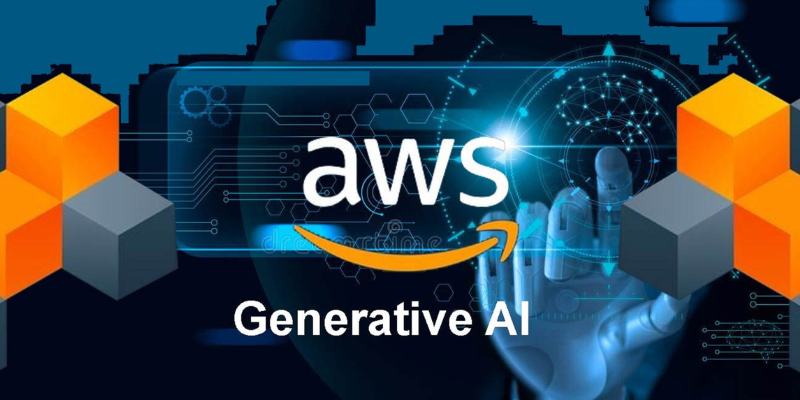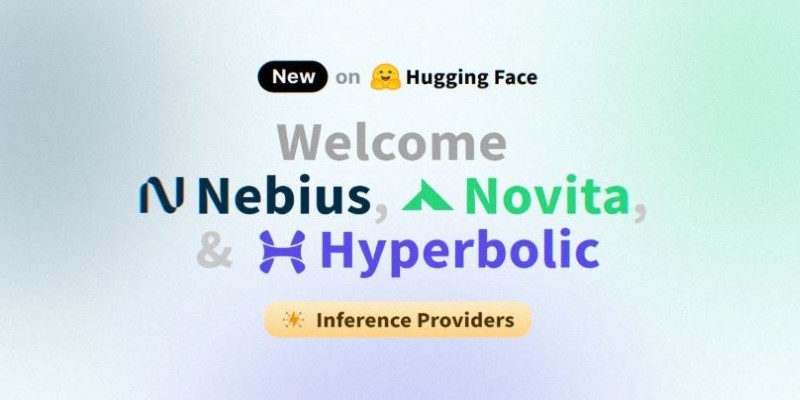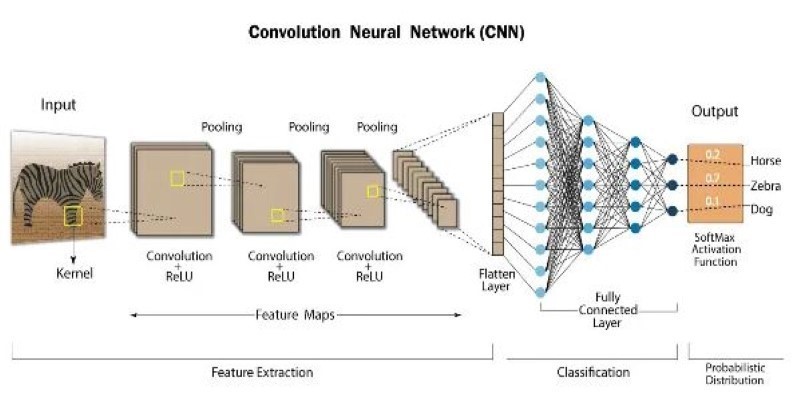Advertisement
Recently, AWS introduced a powerful generative AI platform designed to solve complex business challenges. As demand for scalable and secure AI solutions increases, AWS delivers the infrastructure and a full-stack platform to support cutting-edge generative models. With advanced tools and seamless integrations, the platform enables organizations to build, train, and deploy AI models more efficiently.
AWS offers high levels of adaptability and customization across industries, supporting proprietary and open-source models to give businesses and developers maximum flexibility. Companies in sectors ranging from banking to healthcare can easily adopt the platform to accelerate innovation. Additionally, AWS strongly focuses on improving AI model governance and data security. Its cloud-based infrastructure simplifies AI adoption while supporting scalable operations across enterprise environments.

AWS is aware of the void in business-grade artificial intelligence products. Scalable solutions are needed in many businesses to enable fast growth. AWS's generative artificial intelligence tool helps close this requirement. It lets teams adapt models to fit certain company needs. One location where developers can collaborate with open-source and private AI tools is AWS, which offers mass-scale monitoring, deployment, and model training. Integrated development environments also improve team cooperation.
A significant emphasis is still placed on security in AWS AI architecture. Access restrictions and data encryption help to guard private company data. The program supports certain industry compliance criteria. Tracking real-time performance helps models be optimized more easily. Companies can access modern artificial intelligence without creating infrastructure nowadays. AWS deftly combines artificial intelligence with cloud computing. Companies can leverage known AWS products along with fresh artificial intelligence solutions. For teams, this simplifies procedures and lowers the learning time. The artificial intelligence platform guarantees adaptability and constant performance. AWS helps businesses to embrace artificial intelligence technologies more widely.
AWS created the tool to manage huge volumes of data and computationally demanding applications. AI workloads call for robust design. Specialized artificial intelligence chips tuned for training and inference run on the platform. These chips cut cost per model and increase speed. AWS provides more rapid model-building tools, including SageMaker and Amazon Bedrock. Bedrock supports several providers' popular foundation models. SageMaker lets you access sophisticated training and evaluation tools. With EC2 instances and serverless alternatives, AWS offers flexible computing.
Data handling efficiency is raised via cloud storage and data lakes. Easy building and scaling of AI pipelines is possible. On AWS, teams may handle all aspects of the artificial intelligence life. Automated tools accelerate model deployment—the infrastructure changes according to workload needs. On artificial intelligence operations, customers save money and time. AWS provides the dependability and performance companies want. Its architecture facilitates sophisticated artificial intelligence development. Businesses can innovate free from pricing restrictions or hardware limitations.
Generative artificial intelligence offerings from AWS interact with the larger AWS ecosystem. Integration lets companies make use of current AWS tools and services. It increases output and reduces disturbances during the acceptance of artificial intelligence. The AI tools are good for Amazon S3, Lambda, and CloudWatch services. Teams can quickly monitor systems, handle data, and start processes. Developers gain from shared rights and uniform interfaces. Integration helps model training and deployment chores to be automated as well. Embedded throughout present AWS-based apps are AI models. The system supports several APIs and programming languages.
Teams can rapidly scale ideas across several settings. AWS guarantees excellent identity management with IAM, among other things. It ensures AI tools and data access. The artificial intelligence service conforms to AWS DevOps techniques. AI systems fit very well with constant delivery pipelines. By adopting existing AWS infrastructures, companies save time. The system is strong because of unified logging, monitoring, and security. Faster artificial intelligence implementation across several domains depends on integration.

Companies prioritize AI solutions that meet strict privacy and ethical standards. AWS developed the generative artificial intelligence platform considering these needs. Every model is developed and applied under safe infrastructure. Encryption guards information both during storage and processing. Access limits guarantee that only authorized users have access to critical locations. The platform supports HIPAA and GDPR compliance, among other regulatory criteria. AWS also encourages ethical artificial intelligence techniques. Integrated tools enhance model fairness and assist in finding bias.
Governance includes monitoring results and tracking model variants. Usage controls and data source restrictions give developers better governance. These tools promote transparency and accountability. Companies obtain thorough system reporting and audit-ready logs. AWS gives users full control over both data inputs and model outputs. Tools for privacy stop illegal data exchange. These capabilities help regulated sectors to apply safe artificial intelligence—systems of responsible artificial intelligence foster company credibility and user confidence. With every deployment, AWS ensures the moral usage of artificial intelligence. Secured operations help businesses to feel good.
The AWS generative artificial intelligence platform is being embraced by several sectors quickly. Healthcare organizations use it to analyze medical records and automate documentation. Artificial intelligence helps financial companies streamline reporting and spot fraud. Content creation and product suggestions depend on artificial intelligence for e-commerce firms. AWS lets models be finely tuned for any particular application. Companies can create synthetic data to equip improved models. AI-powered chatbots enhance customer service in call centers. Using generative AI, media firms create scripts, summaries, and stories.
With AI insights, AWS enables legal teams to evaluate materials faster. Platforms for education produce tailored learning materials for each student. These tools help government organizations improve data analytics and openness. The platform's flexibility ensures widespread adoption. The scalability and dependability of AWS help every use case. Using models in production becomes simpler with integration. Industries are cutting expenses and witnessing speedier processes. AWS offers benefits in many different operating settings.
AWS' new generative AI solutions offer robust tools for modern business challenges. Companies now have access to scalable artificial intelligence development under great security—flexible choices and flawless integration help to enable several use situations in diverse sectors. With end-to-end lifecycle support, AWS offers a cloud-based AI infrastructure tool. Features of ethical use and governance help to guarantee safe adoption. The platform accelerates innovation without compromising performance or compliance. AWS helps companies to embrace artificial intelligence confidently and easily. The service is meant for steady value and ongoing expansion.
Advertisement

What is Auto-GPT and how is it different from ChatGPT? Learn how Auto-GPT works, what sets it apart, and why it matters for the future of AI automation

Need to save Python objects between runs? Learn how the pickle module serializes and restores data—ideal for caching, model storage, or session persistence in Python-only projects

How the Open Leaderboard for Hebrew LLMs is transforming the evaluation of Hebrew language models with open benchmarks, real-world tasks, and transparent metrics

Explore the top 10 large language models on Hugging Face, from LLaMA 2 to Mixtral, built for real-world tasks. Compare performance, size, and use cases across top open-source LLMs

Looking for the best way to chat with PDFs? Discover seven smart PDF AI tools that help you ask questions, get quick answers, and save time with long documents

How the world’s first AI-powered restaurant in California is changing how meals are ordered, cooked, and served—with robotics, automation, and zero human error

Learn how to run privacy-preserving inferences using Hugging Face Endpoints to protect sensitive data while still leveraging powerful AI models for real-world applications

Think Bash loops are hard? Learn how the simple for loop can help you rename files, monitor servers, or automate routine tasks—all without complex scripting

How can Google’s Gemma 3 run on a single TPU or GPU? Discover its features, speed, efficiency and impact on AI scalability.

Discover three new serverless inference providers—Hyperbolic, Nebius AI Studio, and Novita—each offering flexible, efficient, and scalable serverless AI deployment options tailored for modern machine learning workflows

How atrous convolution improves CNNs by expanding the receptive field without losing resolution. Ideal for tasks like semantic segmentation and medical imaging

How AutoGPT is being used in 2025 to automate tasks across support, coding, content, finance, and more. These top use cases show real results, not hype